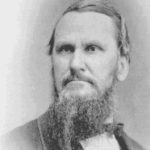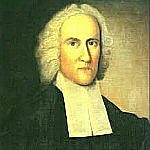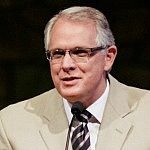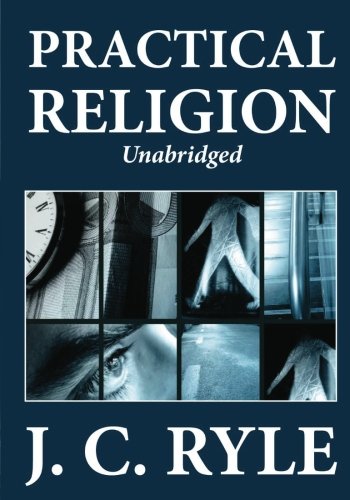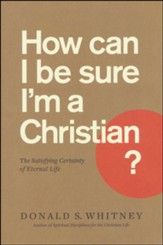Quotes about Self-Examination
Eight reasons that ministers should examine themselves:
1. You have heaven to win or lose yourselves… A holy calling will not save an unholy man.
2. You have sinful inclinations as well as others.
3. (You) have greater temptations than most men.
4. The tempter will make his first and sharpest onset upon you. If you will be leaders against him, he will spare you no further than God restrains him.
5. Many eyes are upon you, and therefore there will be many to observe your falls.
6. Your sins are more aggravated than those of other men. They have more of hypocrisy in them, and are more detrimental to the cause of religion.
7. The honor of your Lord and Master, and of His holy truth, doth lie more on you than other men.
8. The souls of your hearers and the success of your labors do very much depend upon your self-examination.
Quoted in: Derek Prime and Alistair Begg. On Being a Pastor, Moody Press, 2004, p. 307-308.
We should never be afraid to examine ourselves. But when doubts do arise, the solution is not to try harder to prove to ourselves that we are believers. The solution is to flee to the cross and to the righteousness of Christ, which is our only hope. And then, having looked to Christ alone for our justification, we can look to His Spirit to enable us to deal with those areas of our lives that cause doubt.
Copied from The Gospel for Real Life by Jerry Bridges, © 2002, p. 158. Used by permission of NavPress – www.navpress.com. All rights reserved. Get this book!
You can never truly understand or help others, even in your own family, unless you first look thoroughly into your own life and deal with your own sins without compromise, excuses, or evasion (Matthew 7:1-5).
Self-Confrontation Manual, Lesson 2, Page 7, Used by Permission of the Biblical Counseling Foundation.
Men are never duly touched and impressed with a conviction of their insignificance, until they have contrasted themselves with the majesty of God.
[Man never achieves] a clear knowledge of himself unless he has first looked upon God’s face, and then descends from contemplating Him to scrutinize himself. For we always seem to ourselves righteous and upright and wise and holy – this pride is innate in all of us – unless by clear proofs we stand convinced of our own unrighteousness, foulness, folly, and impurity. Moreover, we are not thus convinced if we look merely to ourselves and not also to the Lord, who is the sole standard by which this judgment must be measured.
While you may in charity assume that a Christian brother acts from pure motives, you dare not assume that your own heart is upright. You must be more charitable to others than you are to yourself. You have no access to a fellow Christian’s heart. No ability to test his inward devotion to the Lord, which is the all-important matter in using things indifferent. But you can scrutinize your own heart. You can examine your inner man to detect your own motives and aims for every act.
The Shadow of the Cross – Studies in Self-Denial, 1981, p. 41, by permission Banner of Truth, Carlisle, PA.
The habit of introspection may be abused, to divert the eyes of the soul too much from Christ.
Resolved, whenever my feelings begin to appear in the least out of order, when I am conscious of the least uneasiness within, or the least irregularity without, I will then subject myself to the strictest examination (July 4, and 13, 1723).
Spiritual pride is very apt to suspect others, but a humble saint is most jealous of himself. He is as suspicious of nothing in the world as he is of his own heart. The spiritually proud person is apt to find fault with other saints…and to be quick to notice their deficiencies. But the eminently humble Christian has so much to do at home, and sees so much evil in his own heart, and is so concerned about it, that he is not apt to be very busy with other hearts… Pure Christian humility disposes a person to take notice of everything that is good in others, and to make the most of it, and to diminish their failings, but to give his eye chiefly on those things that are bad in himself.
Resolved, to inquire every night, as I am going to bed, wherein I have been negligent, what sin I have committed, and wherein I have denied myself – also at the end of every week, month and year.
Resolved, constantly, with the utmost niceness and diligence, and the strictest scrutiny, to be looking into the state of my soul, that I may know whether I have truly an interest in Christ or not; that when I come to die, I may not have any negligence respecting this to repent of.
It is easier to cry against one-thousand sins of others than to kill one of your own.
[In the Edwards family] there was never an attempt to shield them from depressing experiences, death or taxes. This was an evil world. There was “vinegar in life.” There were “frowns from heaven.” The children were aware of it. And each one, when a shadow fell across his path, had been taught first of all to anxiously examine himself to discover if this were the chastening rod of God. No circumstance was considered apart from the hand of the Almighty. If, after careful prayerful analysis, he felt his course was right, he continued serene in his position in the midst of conflict.
How would you describe yourself?
1. Are you on fire for God?
2. Are you for the first time realizing that you may not be a Christian?
3. Are you beginning to take your personal relationship with God more seriously?
4. Does your life resemble the values of the world more than the Word?
5. Do you love holiness and hate sin?
6. Do you strive to fight the sin of your heart and not simply address your sinful behaviors?
7. Do you like attending church?
8. Do you appreciate and obey your parents?
9. Do you enjoy reading and studying the Bible?
10. Are you prepared for the new freedoms in your life now that you’re getting older?
11. Do you have strong personal convictions?
12. Are you getting ready to head off to college and move away from your family for the first time in your life?
13. Are you experiencing significant anxiety as you think of the future?
Growing Up Christian, P&R, 2005, p. 25-26. Used by Permission. Get this book!
To correctly evaluate our hearts, we need to examine the thoughts and motives behind our words and actions.
1. Can I choose to undergo the greatest suffering rather than commit the least sin?
2. Can I embrace Christ with His cross?
3. Can I work for God, though there were no wages?
4. Can I swim against the stream, be good in bad times and places?
5. Can I pull out right eyes for Christ and cut off right hands, etc.?
A Puritan Golden Treasury, compiled by I.D.E. Thomas, by permission of Banner of Truth, Carlisle, PA. 2000, p. 257.
Contemplation of God brings reflection on sin, and reflection on sin brings contemplation of God.
The Mystery of Unbelief Kent Hughes taken from Luke by Kent Hughes – Volume 1, copyright 1998, Crossway Books, a division of Good News Publishers, Wheaton Illinois 60187, www.crosswaybooks.org. Page 271.
Men compare themselves with men, and readily with the worst, and flatter themselves with that comparative betterness. This is not the way to see spots, to look into the muddy streams of profane men’s lives; but look into the clear fountain of the Word, and there we may both discern and wash them; and consider the infinite holiness of God, and this will humble us to the dust.
A Puritan Golden Treasury, compiled by I.D.E. Thomas, by permission of Banner of Truth, Carlisle, PA. 2000, p. 254.
Do not then spend the strength of your zeal for your religion in censuring others. The man that is most busy in censuring others is always least employed in examining himself.
A Puritan Golden Treasury, compiled by I.D.E. Thomas, by permission of Banner of Truth, Carlisle, PA. 2000, p. 278.
The man that is most busy in censuring others is always least employed in examining himself.
[People] are not naturally inclined to look at themselves honestly, to perform a self-evaluation under the bright and perfect light of God’s Word. They know instinctively that their pride, self-will and love of sin will be exposed under the Lord’s righteous standards.
No true believer is completely satisfied with his spiritual progress. Under the illuminating, sanctifying influence of the Holy Spirit, all of us are aware of the areas in our lives that still need to be refined and disciplined for the sake of godliness. In fact, the more we mature, the more capable we are of spotting the sin that still remains in our hearts.
We must learn to measure ourselves, not by our knowledge about God, not by our gifts and responsibilities in the church, but by how we pray and what goes on in our hearts. Many of us, I suspect, have no idea how impoverished we are at this level. Let us ask the Lord to show us.
We are bound to follow the apostles’ teaching to examine our faith, but we must do so remembering that while our strongest faith is unable to save us, the weakest faith in Christ grasps a mighty Savior in whom we may rest our souls.
The Day of Judgment will reveal strange things. The hopes of many, who were thought great Christians while they lived, will be utterly confounded. The rottenness of their religion will be exposed and put to shame before the whole world. It will then be proved, that to be saved means something more than “making a profession.” We must make a “practice” of our Christianity as well as a “profession.” Let us often think of that great day. Let us often “judge ourselves, that we be not judged,” and condemned by the Lord.
I am persuaded the more light we have, the more we see our own sinfulness: the nearer we get to heaven, the more we are clothed with humility.
Holy men have kept the sessions at home, and made their hearts the foremen of the jury, and examined themselves as we examine others. The fear of the Lord stood at the door of their souls, to examine every thought before it went in, and at the door of their lips, to examine every word before it went out, whereby they escaped a thousand sins which we commit, as though we had no other work.
A Puritan Golden Treasury, compiled by I.D.E. Thomas, by permission of Banner of Truth, Carlisle, PA. 2000, p. 257.
Self-examination does not imply sinless living. Rather it implies Christlike growing. Self-examination is one finger pointing at yourself while you point the other nine toward Jesus Christ. Self-examination happens periodically while spiritual growth happens constantly.
So, we all sin. How do we know when we sin? Usually in one of four ways. Right after we violate a known command. A biblical rebuke from a fellow believer. After we read our Bible and discover something we have been doing is wrong. Or during prayer as we desire the Lord to search our hearts and reveal any sinful way within us. This is the ongoing biblical process of “self-examination.”
I commend solitude to any of you who are seeking salvation, first, that you may study well your case as in the sight of God. Few men truly know themselves as they really are. Most people have seen themselves in a looking-glass, but there is another looking-glass, which gives true reflections, into which few men look. To study one’s self in the light of God’s Word, and carefully to go over one’s condition, examining both the inward and the outward sins, and using all the tests which are given us in the Scriptures, would be a very healthy exercise; but how very few care to go through it!
Solitude, Silence, Submission, in Metropolitan Tabernacle Pulpit, reprint Pilgrim Publications, 1976, v. 42, p. 266.
It is not my aim to introduce doubts and fears into your mind; no, but I do hope self-examination may help to drive them away. It is not security, but false security, which we would kill; not confidence, but false confidence, which we would overthrow; not peace, but false peace, which we would destroy.
Self-image, the concept we have of ourselves, must begin not by looking in the mirror but by looking into the face of God.
Copied from: Pleasures Evermore: The Life-Changing Power of Knowing God by Sam Storms, © 2000, p. 164. Used by permission of NavPress – www.navpress.org. All rights reserved. Get this book!
What comes into our minds when we think about God is the most important thing about us.
A Pharisee is hard on others and easy on himself, but a spiritual man is easy on others and hard on himself.
When a man has judged himself, Satan is put out of office. When he lays anything to a saint’s charge, he is able to retort and say, “It is true, Satan, I am guilty of these sins, but I have judged myself already for them; and having condemned myself in the lower court of conscience, God will acquit me in the upper court of heaven.
A Puritan Golden Treasury, compiled by I.D.E. Thomas, by permission of Banner of Truth, Carlisle, PA. 2000, p. 280.
Make up your spiritual accounts daily; see how matters stand between God and your souls (Psalm 77:6). Often reckonings keep God and conscience friends. Do with your hearts as you do with your watches, wind them up every morning by prayer, and at night examine whether your hearts have gone true all that day, whether the wheels of your affections have moved swiftly toward heaven.
A Puritan Golden Treasury, compiled by I.D.E. Thomas, by permission of Banner of Truth, Carlisle, PA. 2000, p. 254.
In light of the sober possibility of profession without possession, the New Testament exhorts us to examine ourselves, to see if we are in the faith, to make our calling and election sure (2 Cor. 13:5). We have a moral obligation to encourage others to do likewise.
The moment we imagine that we have exhaustively assessed the sin of our hearts, we have planted, watered, and harvested a crop of pride.





